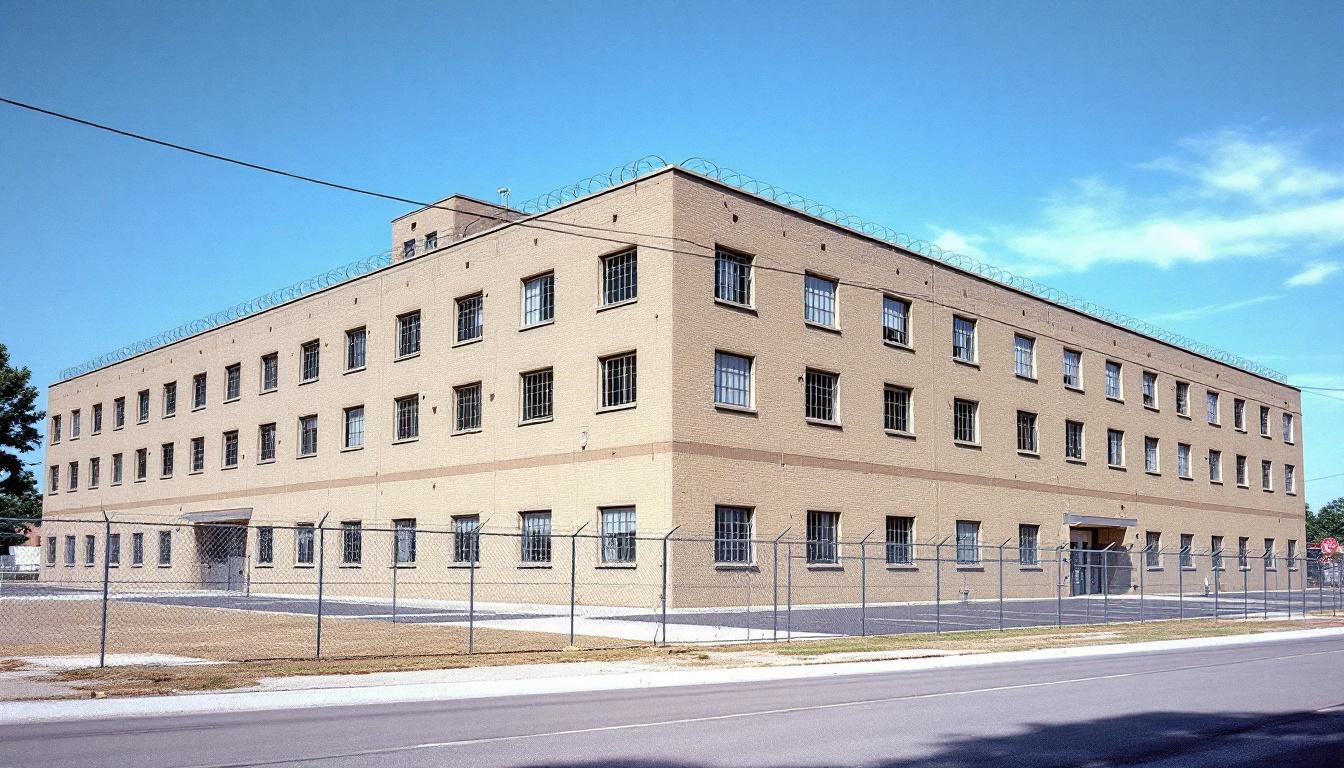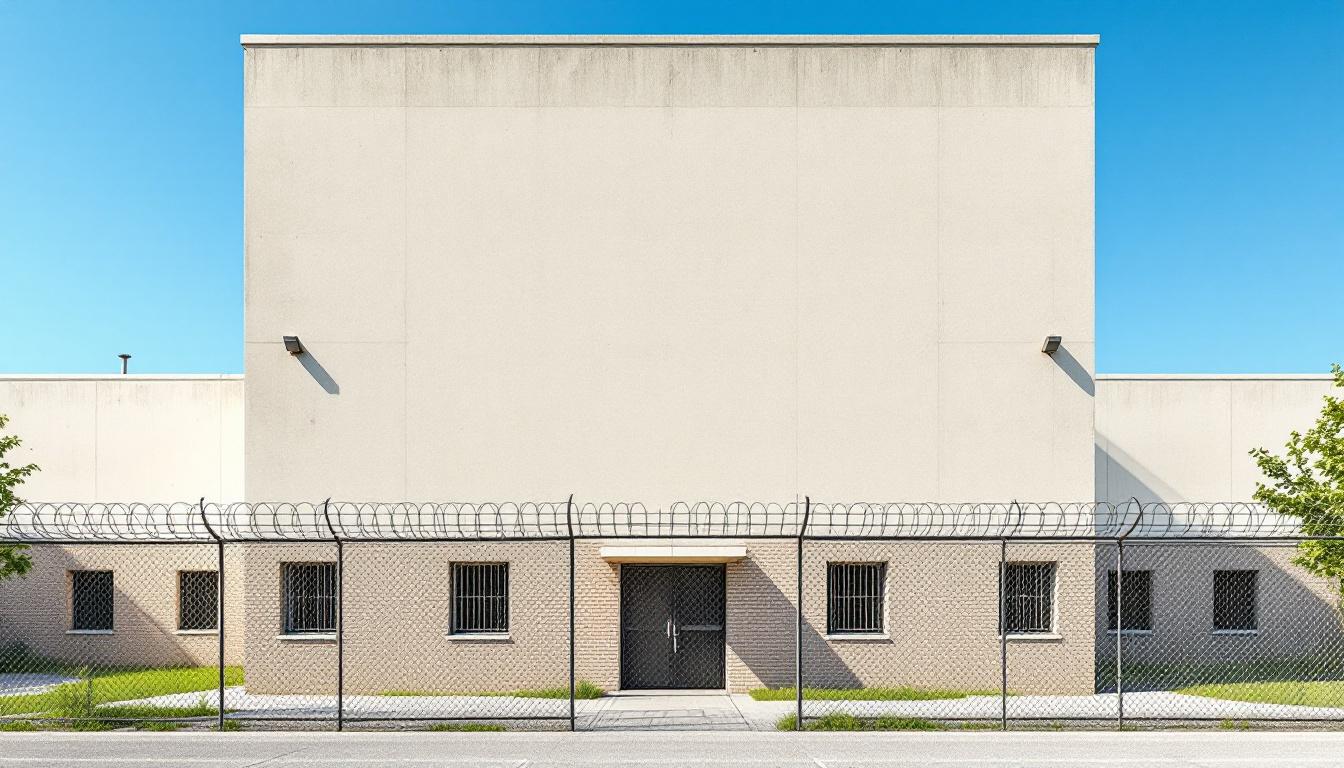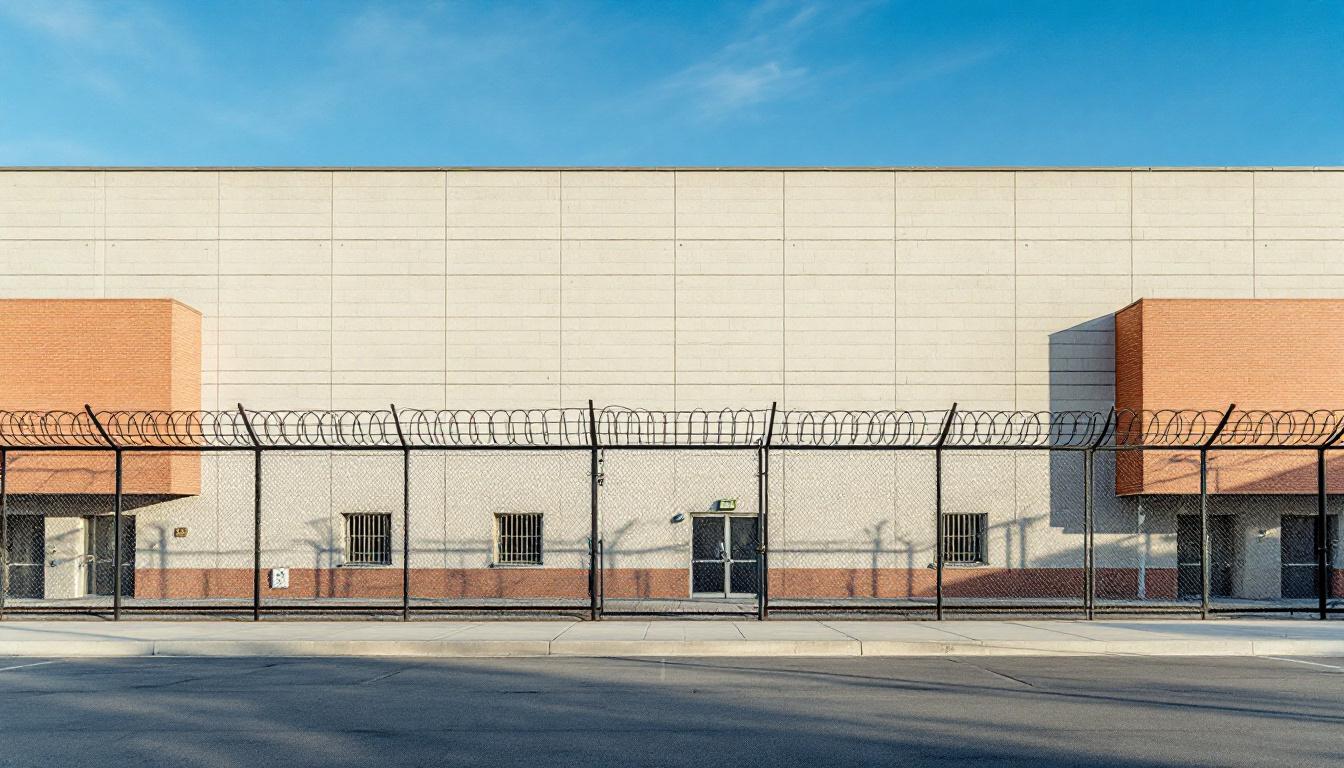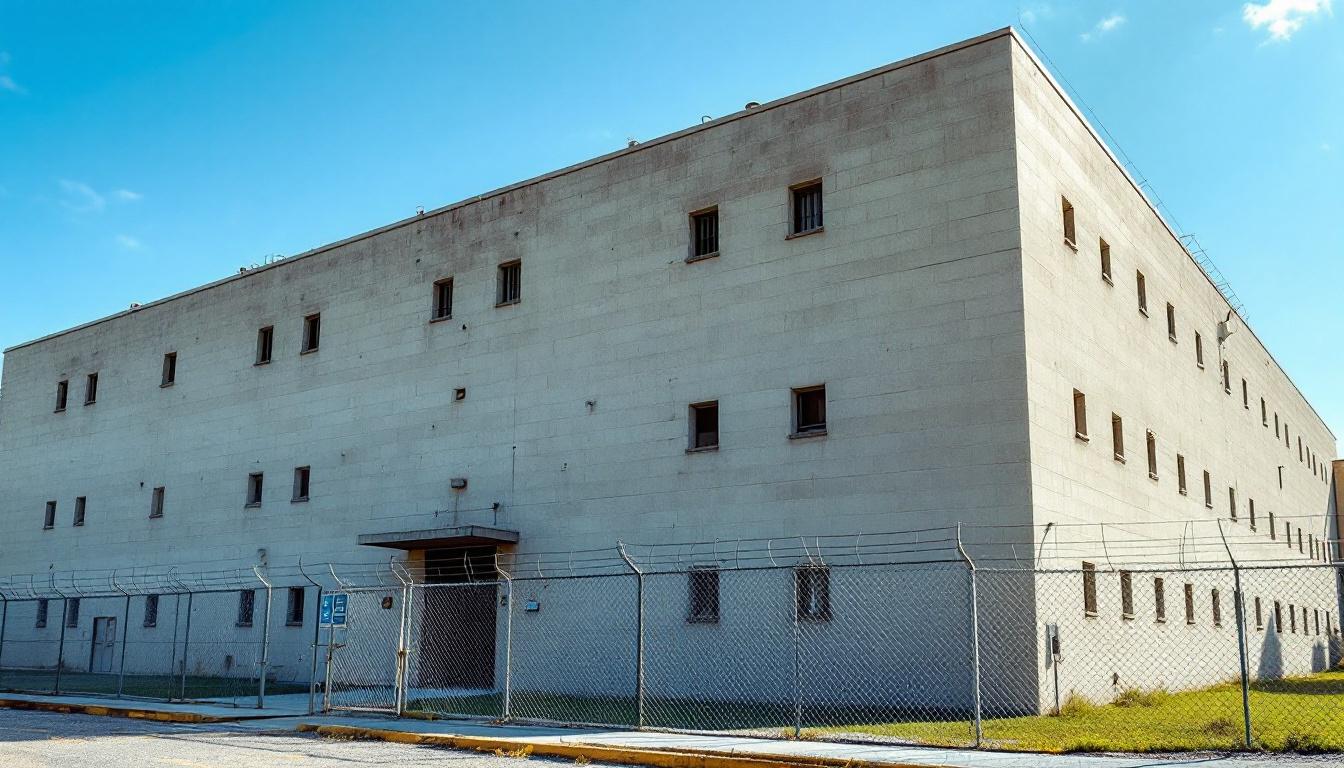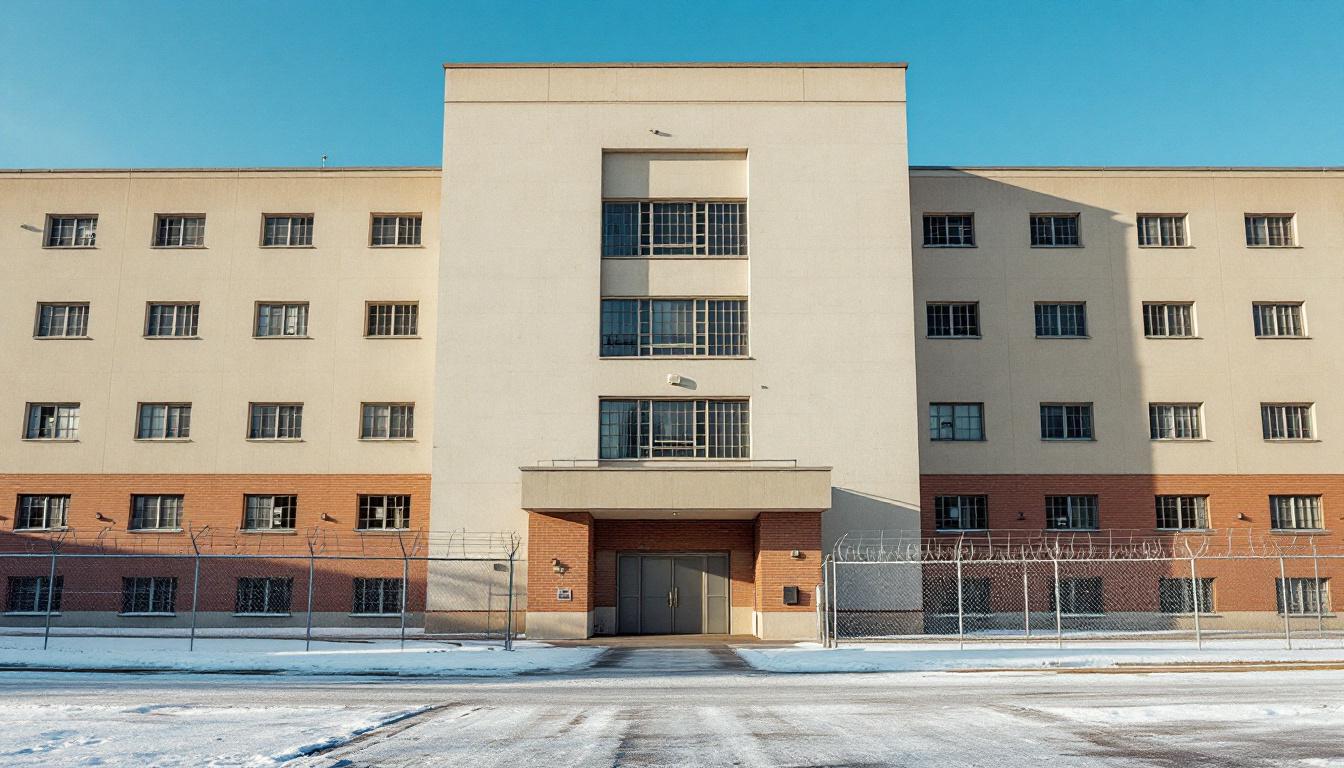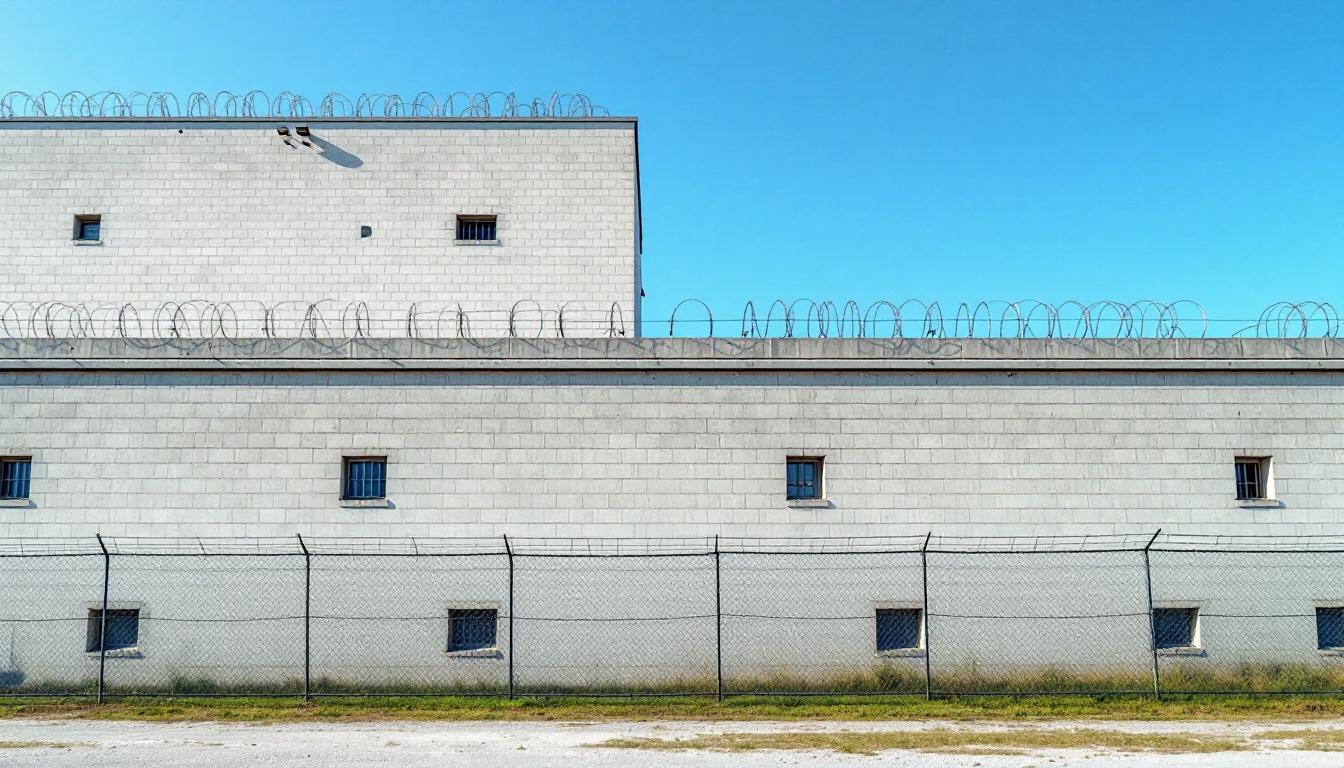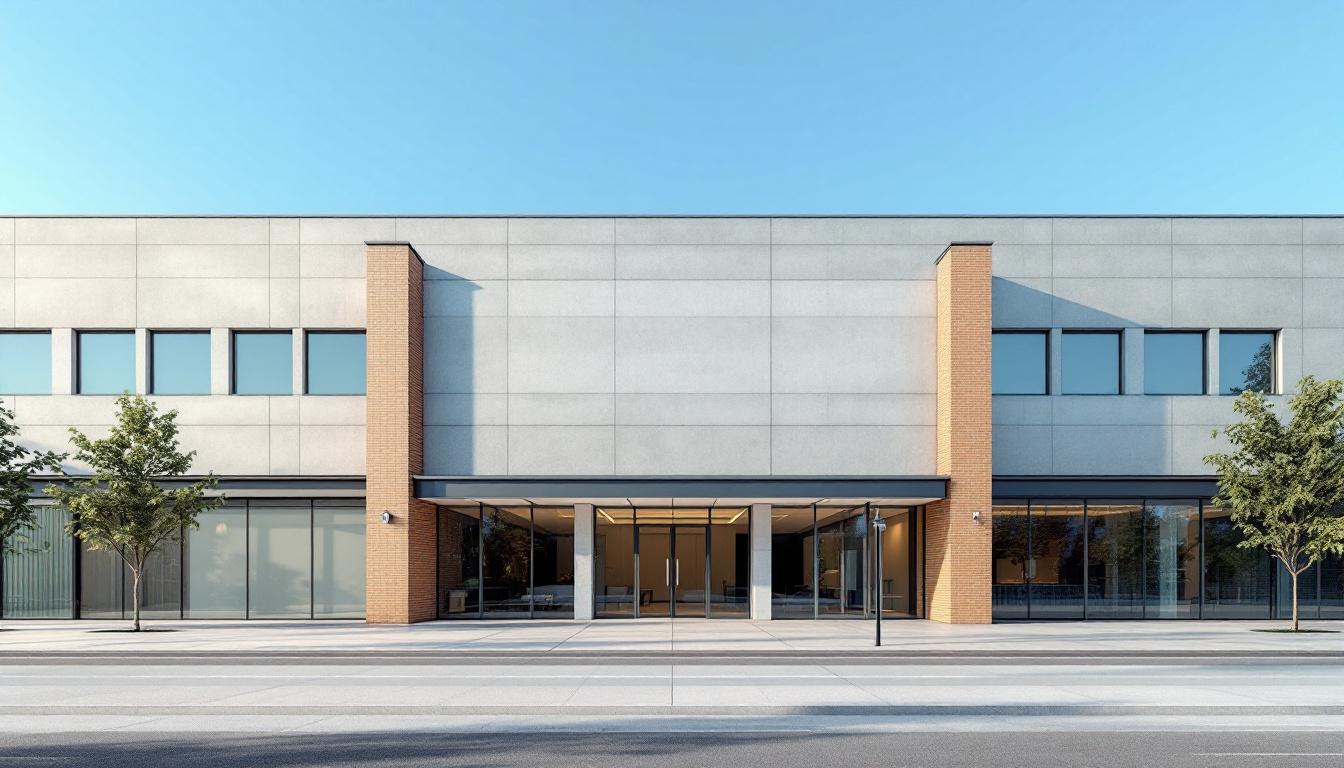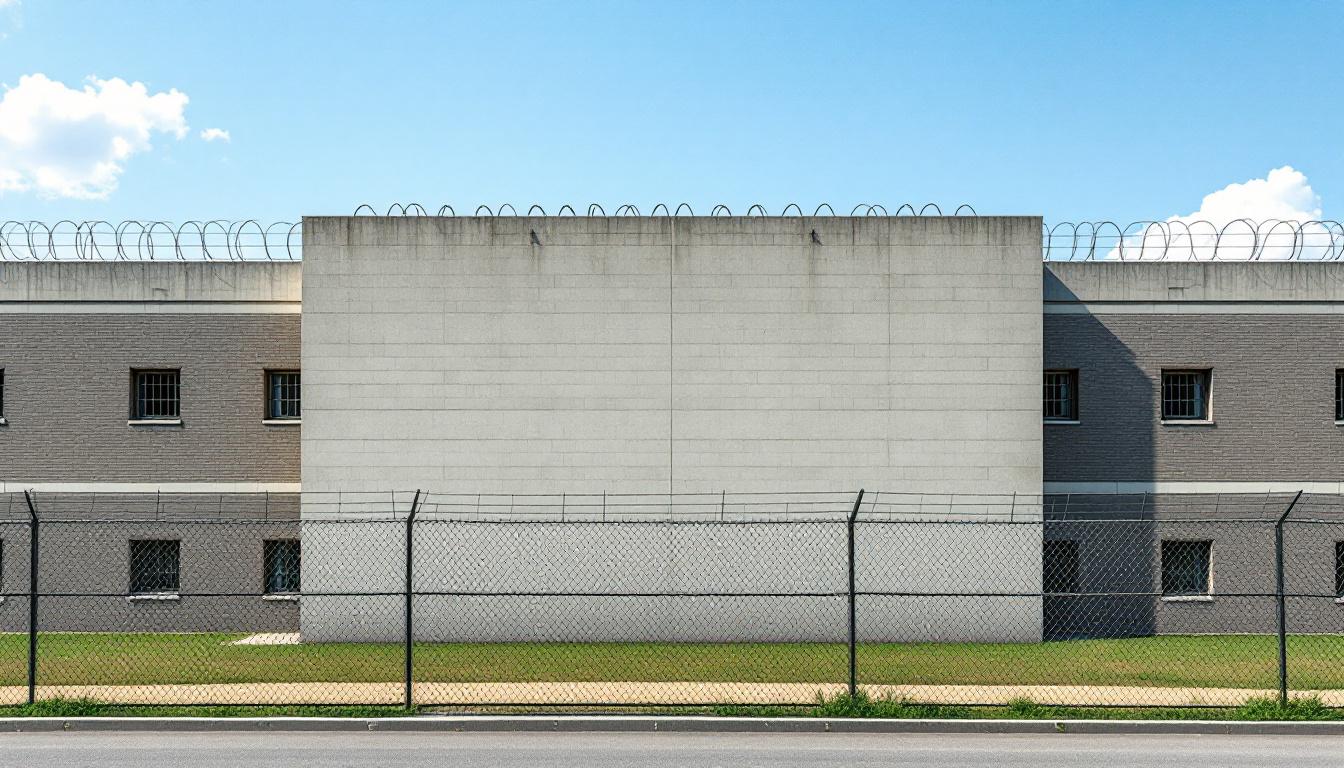
Quick Navigation
How to contact an inmate at Wyandotte County Juvenile Detention
This comprehensive guide will walk you through how to connect with an inmate at Wyandotte County Juvenile Detention. Follow the steps below to find an inmate and send letters and photos:
- Search for the inmate using our search tool below
- Create your account or log in to Penmate
- Write your message (up to 6,000 characters)
- Send instantly - inmates receive printed copies daily
Find an Inmate
Search for an inmate to start communicating today
Tip: You can search by first name, last name, or inmate ID number
To contact a person at Wyandotte County Juvenile Detention start by searching for the person on the facility website. Perform a search by following these steps:
- Step 1: Enter their first name and last name into the search form and click "Search"
- Step 2: Locate their inmate record
- Step 3: Write down their Inmate ID and any housing information provided
Important! Be sure to enter the person's full name. Nicknames should not be used.
How to Send Messages to Inmates

You can use your phone or computer to send emails, letters, and photos to an inmate. Messages are sent electronically to inmate tablets or kiosks at the facility. If you would like to send a message, start by searching for an inmate at Wyandotte County Juvenile Detention.
Sending Photos and Postcards

A great way to send love and support to a loved one at Wyandotte County Juvenile Detention is to send photos and postcards. It only takes a few minutes to send photos from your phone and it makes a huge difference. You can also mail postcards with words of support and inspiration, or design your own postcard for special moments like birthdays and holidays.
Important! Be sure not to send any explicit photos or they may not be approved by the facility. You can also use a photo printing app like Penmate to make sure your photos are printed at the correct size (4x6 or 3x5) and are mailed according to the rules and regulations of Wyandotte County Juvenile Detention.
Frequently asked questions about Wyandotte County Juvenile Detention
-
How long does it take to deliver a message?
If you're sending an email message your letter is usually delivered within 24-48 hours. For messages sent via mail you should expect delivery within 3-7 days. All messages will need be approved by Wyandotte County Juvenile Detention.
-
How much does it cost to send a message to Wyandotte County Juvenile Detention?
You can send a message free using your phone or mail a message via USPS for the price of a $0.60 stamp and envelope. You can also purchase credits or e-stamps from services starting at $1.99.
-
What services can I use to contact an inmate at Wyandotte County Juvenile Detention?
Penmate
You can use Penmate to send letters and photos to an inmate from your phone. It's an easy way to stay in touch during your loved one's incarceration. Use the inmate locator to find an inmate's location and contact information, then you can send messages within a few minutes.
Securus messaging
Securus may be another option for communicating with an inmate at Wyandotte County Juvenile Detention. You can create a friends and family account and purchase credits to send messages. All messages will be reviewed and must be approved by the facility.
JPay
Some county jails and state prisons may support sending messages with JPay. You must register an account with the system, find your loved one, and purchase stamps to send messages. For some locations you can also attach photos.
Smart Jail Mail
You may also check if Smart Jail Mail is available at Wyandotte County Juvenile Detention. Smart Jail Mail is operated by Smart Communications and has contracted with some state and county jails. After purchasing credits, your messages and photos are sent to the facility, printed out, and then handed out to your loved one.
-
What is the mailing address of Wyandotte County Juvenile Detention?
Mailing address:
Wyandotte County Juvenile Detention
738 Ann Ave
Kansas City, KS 66101
Phone: (913) 573-2900Business hours:
- Monday: 9:00 AM – 5:00 PM
- Tuesday: 9:00 AM – 5:00 PM
- Wednesday: 9:00 AM – 5:00 PM
- Thursday: 9:00 AM – 5:00 PM
- Friday: 9:00 AM – 5:00 PM
- Saturday: Closed
- Sunday: Closed
-
What are the visiting hours at Wyandotte County Juvenile Detention?
Visiting hours at Wyandotte County Juvenile Detention vary by housing unit and security level. Generally, visits are scheduled on weekends and holidays, with some facilities offering weekday visits. Contact the facility directly at (913) 573-2900 or check their website for the current visiting schedule. Visits typically last 30-60 minutes and must be scheduled in advance.
-
What items are prohibited when sending mail to Wyandotte County Juvenile Detention?
Prohibited items typically include: cash, personal checks, stamps, stickers, glitter, glue, tape, staples, paperclips, polaroid photos, musical or blank greeting cards, hardcover books, magazines with staples, and any items containing metal or electronics. Only send letters on plain white paper with blue or black ink. Photos must be printed on regular photo paper (no Polaroids). Always check with Wyandotte County Juvenile Detention for their specific mail policies.
-
How do I send money to an inmate at Wyandotte County Juvenile Detention?
You can send money to an inmate at Wyandotte County Juvenile Detention through several methods: 1) Online using JPay, Access Corrections, or the facility's approved vendor, 2) Money orders mailed directly to the facility with the inmate's name and ID number, 3) Kiosks located in the facility lobby, or 4) Over the phone using a credit or debit card. Fees vary by method, typically ranging from $2.95 to $11.95 per transaction.
-
Can I schedule a video visit with an inmate at Wyandotte County Juvenile Detention?
Many facilities now offer video visitation as an alternative to in-person visits. At Wyandotte County Juvenile Detention, video visits may be available through services like Penmate, Securus Video Connect, GTL, or ICSolutions. Video visits typically cost $10-20 for 20-30 minutes and must be scheduled in advance. You'll need a computer or smartphone with a camera and reliable internet connection. Contact the facility for their specific video visitation policies and approved vendors.
-
What identification do I need to visit an inmate at Wyandotte County Juvenile Detention?
All visitors must present valid government-issued photo identification such as a driver's license, state ID, passport, or military ID. Minors must be accompanied by a parent or legal guardian who can provide the minor's birth certificate. Some facilities require visitors to be on the inmate's approved visitation list, which may require a background check. Contact Wyandotte County Juvenile Detention for specific ID requirements and visitor approval procedures.
-
How can I find out an inmate's release date?
To find an inmate's release date at Wyandotte County Juvenile Detention, you can: 1) Use the online inmate search tool if available, 2) Call the facility's records department, 3) Contact the inmate's case manager or counselor, or 4) Have the inmate provide this information during a call or visit. For privacy reasons, some facilities only release this information to immediate family members.
Facility Overview
Contact Information
Wyandotte County Juvenile Detention738 Ann Ave
Kansas City, KS 66101
Phone: (913) 573-2900

About Wyandotte County Juvenile Detention
Serving families and young people throughout the Kansas City metropolitan area, the juvenile justice system in Wyandotte County operates with a fundamental commitment to breaking cycles of delinquency through evidence-based interventions and community-centered rehabilitation. When youth face legal challenges that require secure placement, the facility typically provides a structured environment designed to address both immediate safety concerns and long-term developmental needs. This approach reflects broader trends across Midwest correctional systems that emphasize therapeutic programming alongside traditional security measures, recognizing that effective youth detention must balance public safety with genuine opportunities for positive change.
The Wyandotte County Juvenile Detention, KS generally offers comprehensive services that may include educational programming, mental health support, substance abuse counseling, and family engagement initiatives. Located in Kansas City, KS, this youth detention facility often collaborates with local schools, community organizations, and social service agencies to ensure continuity of care and support during a young person’s placement and transition back to the community. Evidence-based practices typically guide program development, with staff often trained in trauma-informed care and adolescent development principles that recognize the comprehensive needs of justice-involved youth.
As part of Kansas’s broader correctional framework, the facility generally contributes to public safety through structured supervision while maintaining focus on rehabilitation outcomes that benefit both individual youth and their communities. Inmates services may encompass vocational training opportunities, life skills development, and behavioral interventions designed to address underlying factors that contribute to delinquent behavior. The comprehensive approach typically extends beyond the detention period, with reentry planning and community-based follow-up services often playing crucial roles in supporting successful transitions and reducing recidivism rates among young people returning to their families and neighborhoods.
Programs & Services
Transformative personal development lies at the heart of rehabilitation services within Wyandotte County Juvenile Detention, where comprehensive programming addresses the multifaceted needs of young individuals navigating the justice system. The facility’s approach recognizes that meaningful change occurs through structured learning opportunities that build both practical skills and emotional resilience. These carefully designed services typically emphasize character development, critical thinking, and the cultivation of positive decision-making abilities that extend far beyond incarceration.
Educational services form the cornerstone of the facility’s developmental framework, offering inmates opportunities to continue their academic progress while addressing individual learning needs. The education programs may provide coursework aligned with state standards, ensuring participants can maintain educational continuity upon release. Furthermore, vocational training services often include specialized instruction in carpentry and automotive repair, equipping young people with marketable skills that enhance their prospects for successful community reintegration. These hands-on learning experiences typically foster both technical competency and workplace readiness.
Support services extend the rehabilitation mission through diverse programming that addresses personal growth from multiple angles. Forklift operation training may offer inmates certification opportunities in equipment operation, providing direct pathways to employment in logistics and warehouse industries. Furthermore, music programs often serve as creative outlets that promote self-expression and emotional development while building collaborative skills. Substance abuse treatment services typically provide crucial therapeutic intervention for those struggling with addiction, employing evidence-based approaches that address underlying issues contributing to delinquent behavior and support long-term recovery efforts.
Daily Life & Visitation
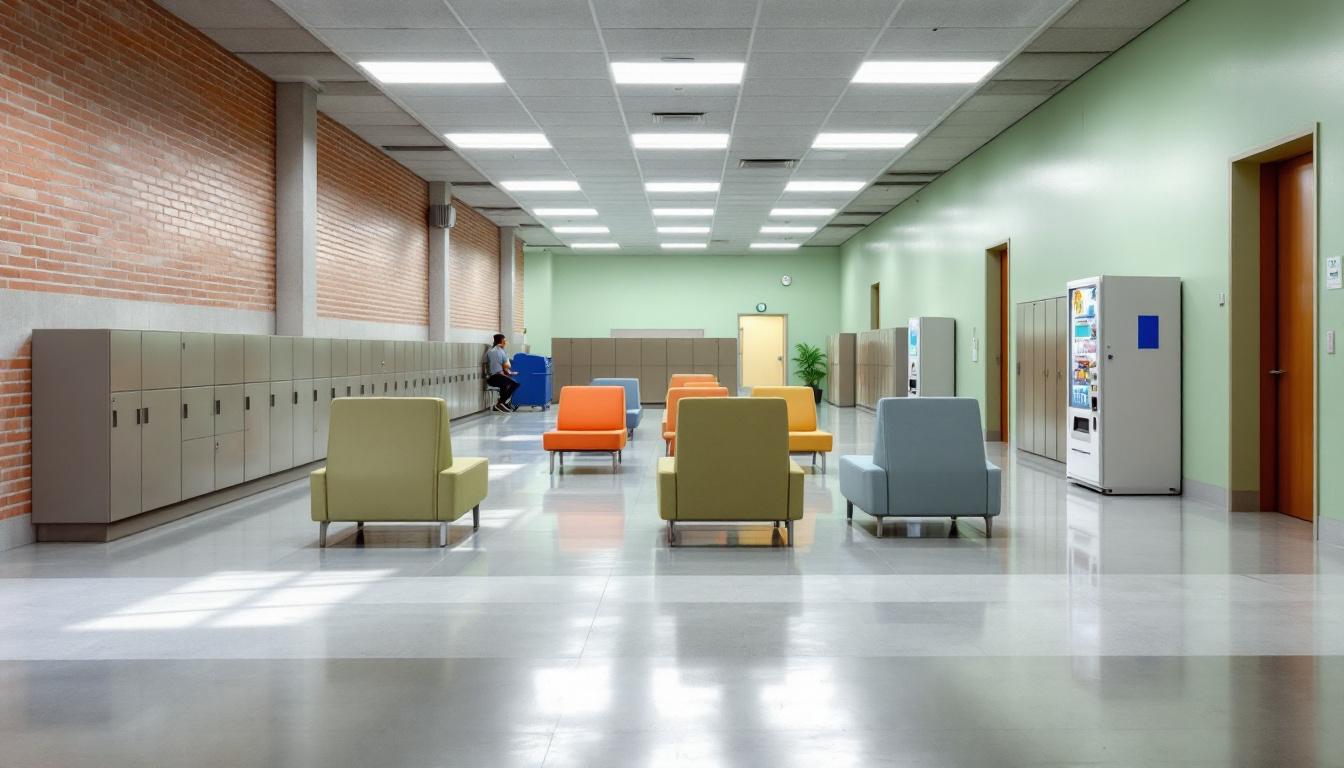
Behind the secure walls and reinforced windows of the Wyandotte County Juvenile Detention facility, young inmates navigate a carefully structured environment designed to maintain order while addressing their developmental needs. At present, the daily rhythm revolves around scheduled activities that actively guide residents through educational programming, meals, and supervised recreation periods. The institutional setting typically begins before dawn with wake-up procedures, followed by personal hygiene routines and preparation for the day’s structured activities.
Furthermore, the living accommodations generally consist of individual or shared cells within housing units that provide basic necessities including beds, storage areas, and bathroom facilities. Inmates usually adapt to the confined spaces by establishing personal routines and maintaining their limited belongings according to facility guidelines. The dining arrangements typically involve scheduled meal times in common areas, where residents may interact with peers under staff supervision while consuming meals that generally meet nutritional standards for growing adolescents.
Although the environment presents significant challenges, various programs provide opportunities for inmates to engage in age-appropriate activities including educational classes, recreational periods, and structured group sessions. Communication with family members typically occurs through scheduled visitation periods and monitored phone calls, which often serve as crucial connections to support systems outside the facility. The commissary system usually allows inmates to purchase approved personal items, while recreational activities may include physical exercise, games, and supervised outdoor time that help residents cope with the institutional setting and maintain their physical and mental well-being during their stay.
Ready to Connect?
Start communicating with your loved one today
Search for an Inmate
